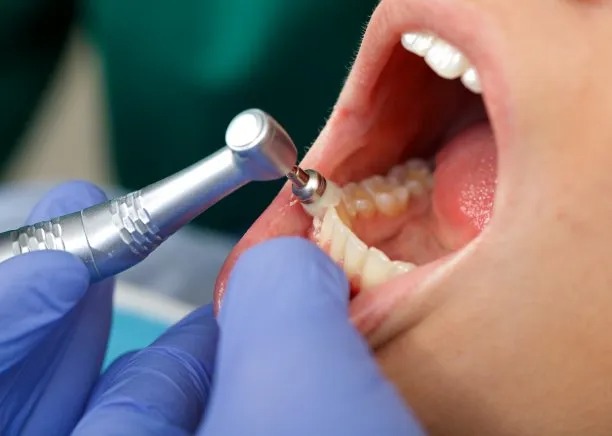Summary: Dental implant surgery can significantly enhance one’s quality of life by restoring teeth that are missing or critically damaged. However, optimal results and a smooth recovery depend on several essential guidelines that must be adhered to before undergoing the procedure. This article explores four crucial areas that prospective patients should focus on: understanding the process, choosing the right dental professional, preparing for the surgery, and post-operative care. By following these guidelines, patients can increase the chances of a successful outcome and experience a more comfortable recovery.
1. Understanding the Dental Implant Process

Before committing to dental implant surgery, it’s crucial for patients to fully understand what the procedure entails. Dental implants involve a surgical operation where artificial tooth roots are placed into the jawbone, providing a stable foundation for replacement teeth. Knowing the different types of implants and their indications will help patients make informed decisions. A consultation with a dental provider can provide the necessary insights to demystify the process.
Additionally, patients should become familiar with the timeline of the procedure. Dental implant surgery is typically a multi-step process that may require several months from initial consultation to final placement of the crown. Understanding this timeline can help set appropriate expectations and reduce any anxiety about the procedure.
Finally, patients should consider discussing any pre-existing health concerns with their dentist. Factors such as smoking, chronic diseases, or medications could impact the surgerys success. Open communication about these issues ensures personalized planning for the best possible outcome.
2. Choosing the Right Dental Professional
The choice of a qualified dental professional plays a critical role in the success of dental implant surgery. Patients should seek out a dentist who specializes in implantology and has ample experience in the field. Checking credentials, reading patient reviews, and asking for referrals can aid in finding the right expert for the job.
Moreover, a thorough consultation with the dentist can help establish a trusting relationship. The dentist should be willing to address any questions or concerns while providing a comprehensive treatment plan customized to the patient’s needs. An open dialogue is essential in ensuring that the patient feels comfortable and informed about the entire process.
Additionally, considering the technology and facilities utilized by the dental practice can impact the quality of care. Advancements in dental technology can contribute significantly to the precision and results of the surgery. Hence, visiting the office and discussing available technologies is a crucial step in the selection process.
3. Preparing for the Surgery Effectively
Preparation for dental implant surgery begins with a well-rounded discussion with the dentist about any necessary tests or imaging studies that need to be performed. Imaging, such as X-rays or CT scans, helps in assessing the condition of the jawbone and determining the ideal placement for the implants.
In addition to pre-operative tests, patients need to follow certain guidelines to ensure optimal surgery conditions. This may include adjusting current medications or quitting smoking, as these factors can significantly impede healing. Nutritional considerations also come into play; a balanced diet is essential for strengthening the immune system ahead of surgery.
Lastly, planning for the post-operative recovery is also a vital aspect of preparation. Patients should arrange for transportation after the procedure and prepare their home for a comfortable recovery. This may include stocking up on soft foods and pain management medications, as well as a rest area for relaxation during the initial healing phase.
4. Ensuring Post-Operative Care
After dental implant surgery, adhering to post-operative care instructions is essential for healing and ensuring the longevity of the implants. Patients should follow their dentist’s guidelines regarding oral hygiene, which includes gentle brushing and rinsing techniques to avoid irritation.
Pain management will also be an important aspect of recovery. Many dentists will prescribe medications to help alleviate discomfort. Following the prescribed dosage and regimen can enhance recovery from the surgery. In addition, patients should monitor their healing process by being aware of any unusual symptoms that may arise, such as swelling or excessive bleeding.
Lastly, regular follow-up appointments with the dentist are crucial to assess the healing progress and the stability of the implants. These appointments allow for early detection of any issues that may arise, thereby ensuring the long-term success of the dental implants.
Summary:
In conclusion, effective preparation and understanding of the dental implant process significantly contribute to a successful outcome and recovery. Patients are encouraged to commit to understanding all aspects of the surgery, selecting the right dental professional, adequately preparing for the procedure, and ensuring diligent post-operative care. Following these essential guidelines can lead to improved results and a seamless recovery experience.
This article is compiled by Vickong Dental and the content is for reference only
Vickong Dental
Vickong Dental is a large medical group established in Hong Kong in 2008 by professors from well-known medical universities in Guangdong and Hong Kong, as well as medical doctors from key national '985' universities (including Master's supervisors and senior professors). The chain of branches brings together expert dentists with PhDs and Master's degrees from Hong Kong and Mainland China, committed to providing high-quality dental treatment.
"Vickong Dental Practices the University Motto of 'Healing and Serving Society,' with a Stable Operation for Sixteen Years. It Has Been honored with Hong Kong Enterprise Leaders's Choice,' and is a Global Trusted Implant Center for the Nobel Implant System. Recommended by Hong Kong Metro Broadcast and Guangdong Television, it Serves Customers from Over Thirty Countries and Regions, Gaining the Trust and Favor of Citizens from the Guangdong-Hong Kong-Macau Greater Bay Area and Surrounding Cities.

Thousands of customers' unanimous praise
The most recognized and highly recommended dental service by customers in the Guangdong-Hong Kong-Macau Greater Bay Area
We Ensure You Receive Detailed Care and Attention Here
Hong Kong standards, Shenzhen prices, Your Trusted English-speaking dentists

Vickong Dental Medical-Grade Instrument Disinfection Process
Vickong Dental Medical-Grade Instrument Disinfection Process

Vickong Dental Chain: A Warm and Comfortable Environment for Treatment






Appointment Hours

Q&A
Why choose Vickong Dental?
Vickong Dental practices the university motto 「Medicine to Benefit Society」, with each branch bringing together highly qualified dentists with doctoral and master’s degrees from Hong Kong and the Mainland, and has maintained seventeen years of steady operation。Recipient of 「2024 Hong Kong Enterprise Leaders Brand」, 「2025 Hong Kong Enterprise Leaders Brand」, a Nobel Biocare Global Trusted Implant Center, and a brand recommended by Metro Radio Hong Kong and Guangdong TV。
To date, we have served customers from more than thirty countries and regions,earning exceptionally high word-of-mouth recognition and trusted recommendations from residents across the Guangdong-Hong Kong-Macao Greater Bay Area and surrounding cities
We have eight major branches in Zhuhai、Shenzhen,and a consultation and service assurance center in Hong Kong,so you can book a free consultation at any time for any questions,which is very reassuring.
If I do not accept the quotation after the CT scan, will I be charged??
No! As long as the actual treatment has not started, you will not be charged any fees.
Will there be any additional charges during the treatment process?
No, there won’t be any additional charges. Before treatment begins, we will clearly explain the treatment plan and its corresponding fees. Only after the patient agrees and signs the consent form will we proceed with the dental service.
Can I pay in Hong Kong dollars?
Yes. Vickong Dental accepts payment in Hong Kong dollars. The amount will be converted based on the exchange rate of the day, and the applicable rate will be clearly communicated to you in advance.
Can I reschedule my appointment at any time?
Yes. Please contact us via **WeChat** or **WhatsApp** as early as possible, providing your original appointment time and details, along with your preferred new date and time slot for rescheduling.













